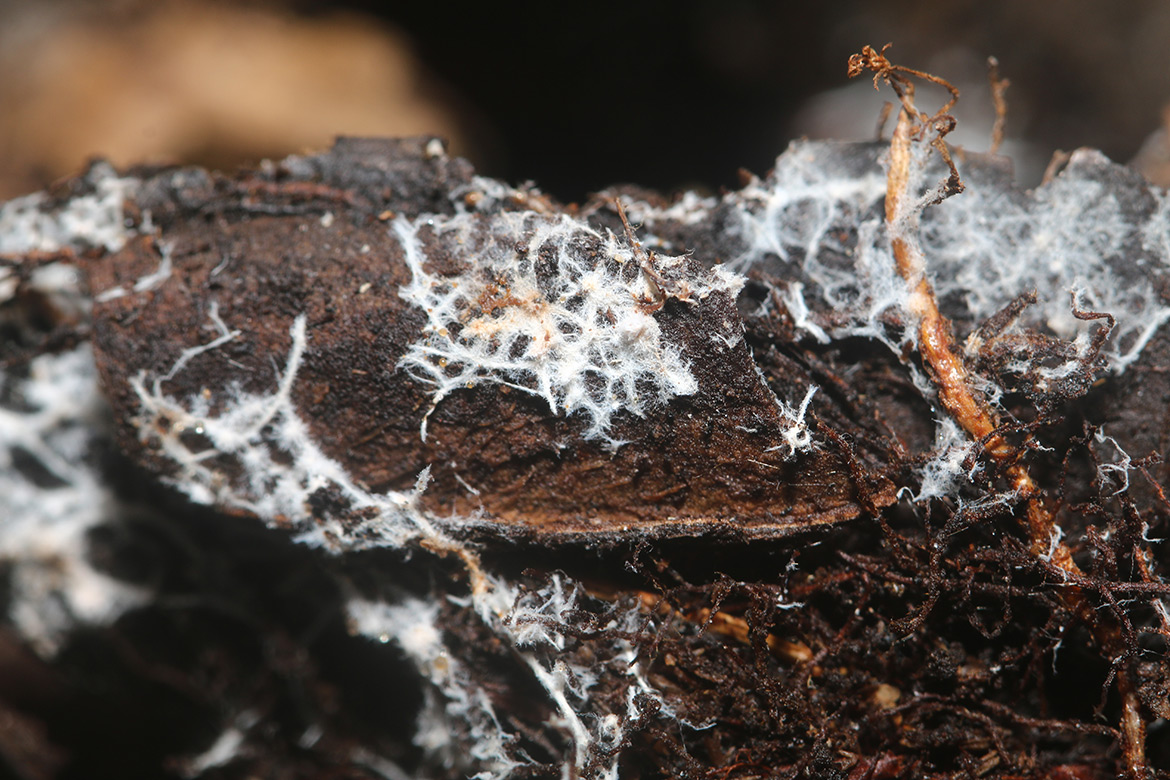EXPERIENCE OF VIOLENCE
Resilience always has its price
There are different ways of coping with stressful experiences. Sometimes, however, it can be immensely draining to summon up the resilience needed to find your way back to a normal life. We take a closer look at what this ‘resilience’ actually entails.

Here, a teenager dances as an act of self-determination. Young women exposed to violence at home can take refuge at the ‘Mädchenhaus’ in Zurich. They are encouraged to develop increased resilience, including through creative projects such as the video ‘We are many’, from which this still is taken. | Image: Mädchenhaus Zürich
How do we find our way back to normality after a traumatic experience? Why do some people succeed in living a fulfilled life, despite enduring great stress? Resilience is a ubiquitous topic today, and in the public sphere it’s often summed up by vapid maxims such as ‘What doesn’t kill you, makes you stronger’. Researchers into resilience have little time for such banalities. But nor do they have any uniform understanding of what actually constitutes psychological resilience. “Just like many other psychological constructs, ‘resilience’ defies any convenient definition”, says Wassilis Kassis, a professor of educational psychology at the School of Education of the University of Applied Sciences and Arts Northwestern Switzerland (FHNW).
Violence always happens to others
When he set out on his career, Kassis was primarily concerned with the causes of violence. But for more than 20 years now, he’s been investigating why some young people manage to lead unencumbered, even happy lives despite having suffered abuse in childhood. “Resilience per se doesn’t exist”, he says. What actually counts as positive growth, he believes, can only ever be determined when you look at someone’s prior circumstances. This is why he has absolutely no time for the pseudo-wisdom of the abovementioned maxim. “A saying like that might perhaps be valid in sports”, he says. But the idea that parental violence could somehow provide someone with the necessary strength to cope with the rest of their lives is something that he finds cynical, even inhuman. “There has been no study anywhere in the world that could even begin to prove any positive impact from the use of violence”, he says. It’s always best for a child when it isn’t beaten or kicked at all.
Abuse in the family isn’t something that happens only on the margins. Kassis regularly conducts studies on this topic in collaboration with other researchers, using a varied range of methods – they are currently conducting a study of some two thousand young people in north-western Switzerland. And they always come to the same conclusion: whether they’re poor, rich or from the broad swathes of the middle class, or from Austria, Greece, Slovenia or even Switzerland: one in five children experiences massive physical violence in their family. “It’s frightening how stable these figures are”, he says. And we’re not ‘just’ dealing with the odd slap around the head: “We are talking about being beaten with a stick or a belt, being punched and kicked”. But Kassis isn’t surprised that the idea still persists that violence takes place mostly on the fringes of society – such as in families with a migrant background, a low standard of education or on a low income. “It’s an issue we prefer to dismiss and blame on others”.
Resilience requires resources
So it’s clear that a lot of people have to develop resilience in the face of violence. For a long time, this ‘resilience’ was understood as an absence of notable problems such as aggression, depression or anxiety disorders. But the absence of such symptoms by no means signifies that someone is actually doing fine, Kassis insists. After all, the absence of war isn’t the same as peace. Nevertheless, in such cases, people have already achieved a lot. “It is an immense accomplishment to have broken out of the vicious circle of violence”.
Resilience never comes for free. “All the energy that a child invests in trying to be different from their parents is energy that’s missing in other places”, says Kassis. In such a situation, they are hardly going to have any strength left to nurture an optimistic view of their own future, or to formulate what they want from their life beyond merely surviving and functioning. This is why, in a recent study of Swiss junior high-school children exposed to parental violence at home, Kassis and his team examined not just characteristics of psychological disturbance such as aggressive behaviour, depression and dissociation, but also indicators such as self-efficacy, self-determination and well-being. “Resilience also means finding a positive approach to yourself and to your environment”.
Young people who lead not just a symptom-free life, but also a good life, are notable for being securely embedded in their social environment. They have good friends, but above all they have reliable adults around them whom they can trust, whether these be relatives or teachers. “After their family, school provides a child with their most important field of reference”, says Kassis. If a school adopts a benevolent, understanding attitude and is also supportive and challenging, it can achieve a lot. And yet, says Kassis, regardless of how important it is for a school to adopt strategies of sensitisation, respect and flexibility when dealing with children, this still doesn’t adequately address the real problem: the fact that violence is taking place in the midst of our society.
An app for emotional resilience
Birgit Kleim is a professor of experimental psychopathology and psychotherapy at the University of Zurich. Experiences of violence have also been the focus of her research right from the start. She has primarily been investigating how we might prevent the development of post-traumatic stress disorders or depression after someone has experienced a robbery, for example. This would mean reacting at an early stage – already when the person in question is in the ER or with the police. “Many people only seek therapeutic help once their symptoms are already chronic”, she says.
In order to bridge this gap, Kleim also began focusing her scholarly work on those people who have been able to process such stressful experiences particularly well. Her findings have now been incorporated in the development of an app that can help people to practise the art of resilience using common instances of everyday stress. The aim is that they might then be able to call on these coping strategies in cases of greater stress. One of Kleim’s core ideas is what she calls ‘reappraisal’: “With this cognitive strategy”, she explains, “negative situations are viewed from a different perspective, enabling us to interpret and evaluate them in a new, different way”. This approach naturally has its limits. And when people have to deal with persistent psychological symptoms resulting from serious, longer-lasting sources of stress – like the parental violence studied by Kassis – psychotherapy remains the method of choice.
Gregor Hasler is a psychiatrist, psychotherapist and neuroscientist at the University of Fribourg, and he is taking a very different approach to identifying the essence of resilience. He has found that stress symptoms have been increasing continuously over the past decades. He believes that it is not primarily a psychological problem of the individual, but one that affects society as a whole. “These days, we are no longer bound in a totality of meaning; we lack social cohesion”, he says. He notes that religion used to provide the primary, overarching narrative in earlier times, and that it was even able to situate great misfortunes – such as the loss of a child – in a greater context. But that is no longer the case. “In today’s world, we always expect people to cope individually”, says Hasler. But this is much more difficult. Resilience, he believes, depends very much on one’s ability to give meaning to one’s own life: “There is hardly any factor that is more important than ‘meaning’”.
Increased cortisol levels
Today, researchers like Hasler and Kassis are also investigating the neurobiological processes in the brain that might lie at the heart of resilience. Kassis, for example, is currently investigating how experiences of violence are deposited as stress in the body. “Young people who experience violence often have permanently elevated cortisol levels”. This means that they don’t experience the same sense of freedom as their unstressed peers when trying to react appropriately to challenging situations.
“These children get very angry much faster than their peers”, he explains. This means we have to take a whole new look at their behaviour and their experience: “After all, if someone can’t see properly or has limited hearing, we don’t just tell them to make more of an effort”. But at the same time, adolescence is a phase of great neuronal plasticity, making it an ideal time to set a new course in life: “Resilience isn’t simply a personality trait. It’s a state that you can keep altering, time and again”.




